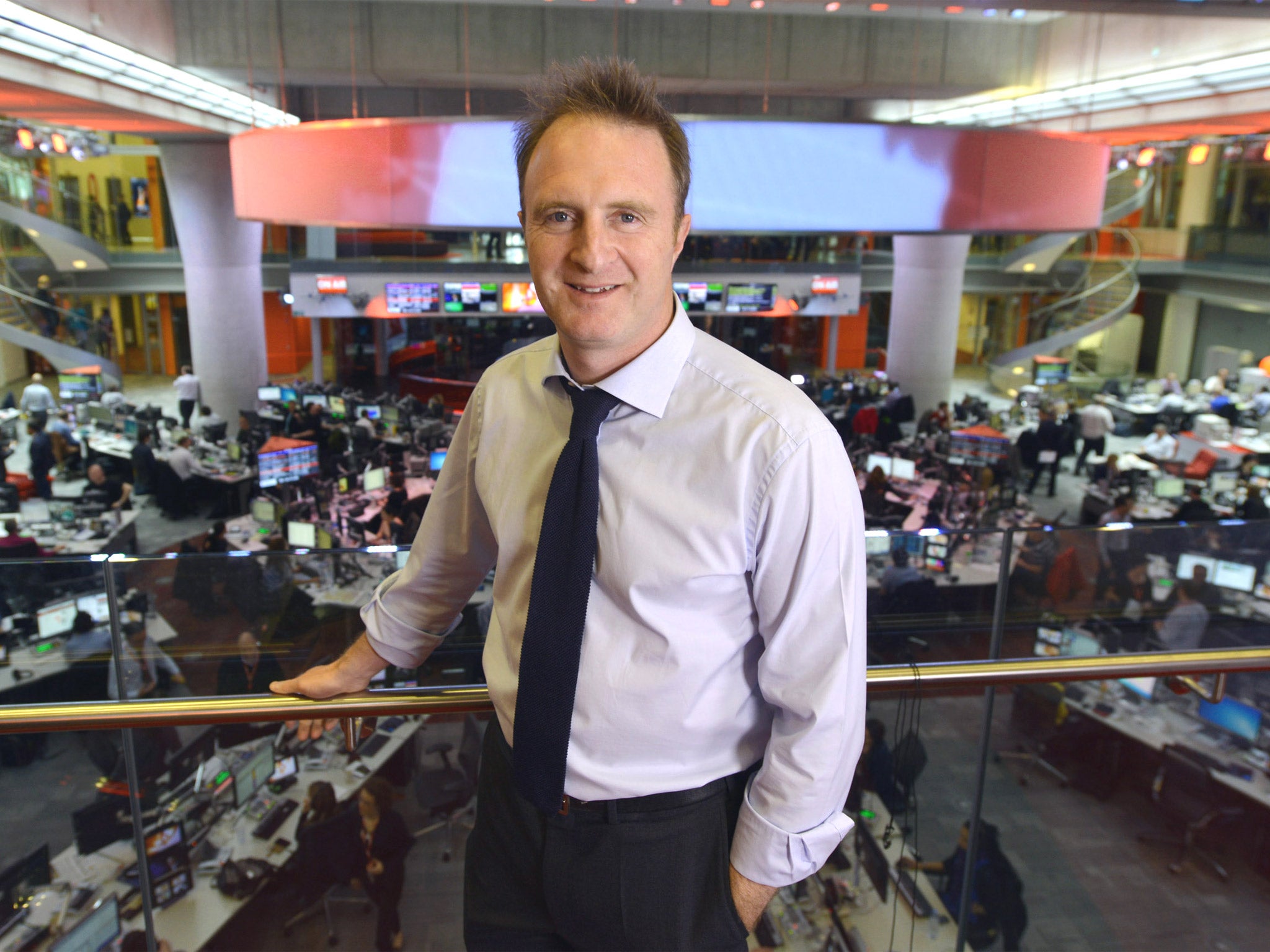'Honoured' to join the BBC: James Harding - the man who tore it to bits
New colleagues may be unsettled by the views printed in The Times during his time as editor

Your support helps us to tell the story
From reproductive rights to climate change to Big Tech, The Independent is on the ground when the story is developing. Whether it's investigating the financials of Elon Musk's pro-Trump PAC or producing our latest documentary, 'The A Word', which shines a light on the American women fighting for reproductive rights, we know how important it is to parse out the facts from the messaging.
At such a critical moment in US history, we need reporters on the ground. Your donation allows us to keep sending journalists to speak to both sides of the story.
The Independent is trusted by Americans across the entire political spectrum. And unlike many other quality news outlets, we choose not to lock Americans out of our reporting and analysis with paywalls. We believe quality journalism should be available to everyone, paid for by those who can afford it.
Your support makes all the difference.After being confirmed as the BBC’s new director of News & Current Affairs, James Harding told his new colleagues that he was “honoured to join a newsroom such as this”.
The former editor of The Times also told journalists at New Broadcasting House that “the BBC, of course, has its critics”.
He should know. The Times, during Harding’s five years of editorship, was among the most strident.
“What the BBC is not, and has never been, is an organisation devoted to investigative journalism. This is neither its forte, nor its primary métier,” opined a leading article in Harding’s paper last November, as the news division which he will lead found itself reeling over the Savile and McAlpine scandals.
Panorama, the BBC’s flagship investigative programme, which is facing a problematic period after criticism of two documentaries, will await his thoughts. The London School of Economics demanded the withdrawal of a programme on North Korea, shown on Monday night, because it allegedly endangered students used as cover by the presenter John Sweeney. And a producer working on a separate investigation into homes in the Caribbean has resigned after allegations that he attempted to bribe a security guard.
Addressing staff, Mr Harding certainly did not say investigative journalism should not be the BBC’s forte. “It is charged with pursuing journalism in the public interest and it can – and must – produce the investigative journalism and analytical reporting that delivers on this mission to inquire and explain,” he said.
Many BBC journalists feel squeezed by cuts resulting from a frozen licence fee. But The Times had no sympathy in a leader published by Harding last July. “The BBC distorts and suffocates an industry. It is too big,” it said. “The BBC’s charter will be up for renewal in 2016. It stretches credibility that it could or should be renewed in its current form.”
Today his tone was different. “The BBC plays a role that should make us all immensely proud.”
The Times, of course, is part of a commercial media empire that is threatened by the BBC. Leading articles do not necessarily represent the personal views of the editor. And by the time Mr Harding resigned in December he had fallen out with Mr Murdoch, as he indicated in his resignation email. “It has been made clear to me that News Corporation would like to appoint a new editor of The Times.”
Among the biggest BBC targets for The Times under Mr Harding was the BBC website, a major threat to subscription-only sites like the one set up by Rupert Murdoch in 2010. “The BBC ought to be a creative force for entrepreneurship. In reality it stifles innovation,” said a Times leader. “Its websites... have destroyed jobs, livelihoods and creativity by dumping free content on to markets where its rivals have no public subsidy.”
Mr Harding will spend four months preparing for the transition in roles. Among his tasks will be to make BBC news output attractive to young people. That does not sit well with Times demands in 2010 for the BBC to “consider selling Radio1”, home of youth news service Newsbeat, or to “give up BBC Three”, which has made award-winning documentaries for the under 35s. The paper, under Mr Harding, also used its leaders to call for the BBC to be regulated by Ofcom and berated the BBC Trust chairman Lord Patten for “arrogance and defensiveness”. It complained repeatedly of BBC executives earning “more than the Prime Minister” (as will Mr Harding, who will have a salary of £340,000).
He was an extremely popular editor and his task is to build a similar morale among the BBC journalists who recently went on strike over their working conditions and who, he acknowledged, have been through a turbulent time. “I know these last months have been hard going, but I hope that the recent chastening of the BBC will have, if anything, renewed our ambition,” he said. He must hope they believe his latest battle cry – and not the withering words he signed off while editing Mr Murdoch’s “Thunderer”.
A change of tune? The Times on the BBC
“The BBC distorts and suffocates an industry. It is too big.”
“Big, bloated and cunning” – headline of a leader on the BBC, 2010
“The BBC ought to be a creative force for entrepreneurship. In reality it stifles innovation.”
“Its websites, which may seem like a handy and innocuous extension of its news gathering, have destroyed jobs, livelihoods and creativity.”
“What the BBC is not, and never has been, is an organisation devoted to investigative journalism.”
Join our commenting forum
Join thought-provoking conversations, follow other Independent readers and see their replies
Comments